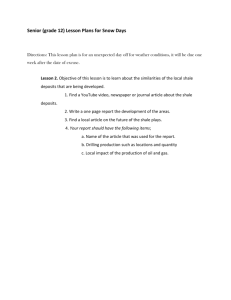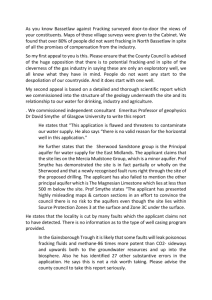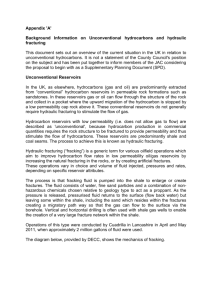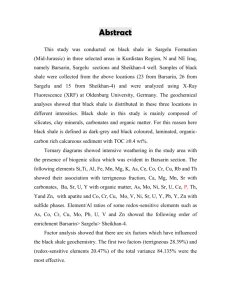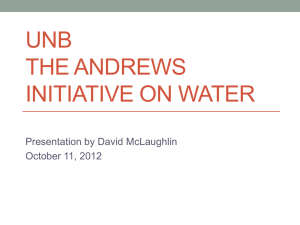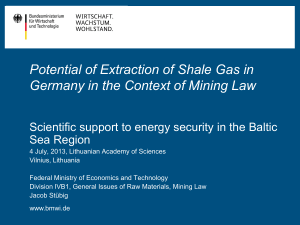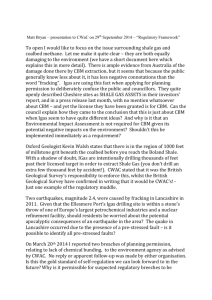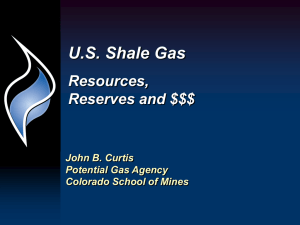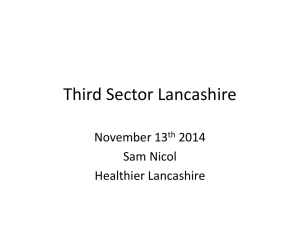Briefing Note: UPDATE ON ONSHORE GAS AND OIL LICENCING
advertisement
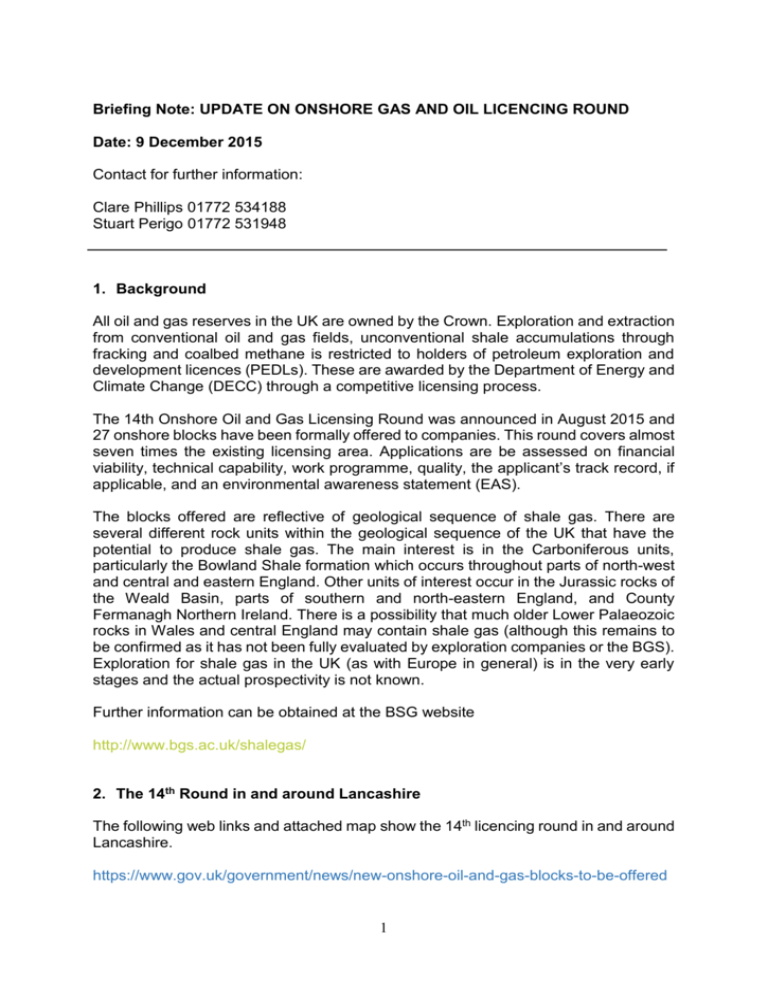
Briefing Note: UPDATE ON ONSHORE GAS AND OIL LICENCING ROUND Date: 9 December 2015 Contact for further information: Clare Phillips 01772 534188 Stuart Perigo 01772 531948 1. Background All oil and gas reserves in the UK are owned by the Crown. Exploration and extraction from conventional oil and gas fields, unconventional shale accumulations through fracking and coalbed methane is restricted to holders of petroleum exploration and development licences (PEDLs). These are awarded by the Department of Energy and Climate Change (DECC) through a competitive licensing process. The 14th Onshore Oil and Gas Licensing Round was announced in August 2015 and 27 onshore blocks have been formally offered to companies. This round covers almost seven times the existing licensing area. Applications are be assessed on financial viability, technical capability, work programme, quality, the applicant’s track record, if applicable, and an environmental awareness statement (EAS). The blocks offered are reflective of geological sequence of shale gas. There are several different rock units within the geological sequence of the UK that have the potential to produce shale gas. The main interest is in the Carboniferous units, particularly the Bowland Shale formation which occurs throughout parts of north-west and central and eastern England. Other units of interest occur in the Jurassic rocks of the Weald Basin, parts of southern and north-eastern England, and County Fermanagh Northern Ireland. There is a possibility that much older Lower Palaeozoic rocks in Wales and central England may contain shale gas (although this remains to be confirmed as it has not been fully evaluated by exploration companies or the BGS). Exploration for shale gas in the UK (as with Europe in general) is in the very early stages and the actual prospectivity is not known. Further information can be obtained at the BSG website http://www.bgs.ac.uk/shalegas/ 2. The 14th Round in and around Lancashire The following web links and attached map show the 14th licencing round in and around Lancashire. https://www.gov.uk/government/news/new-onshore-oil-and-gas-blocks-to-be-offered 1 https://deccedu.maps.arcgis.com/apps/webappviewer/index.html?id=29c31fa4b00248418e545d 222e57ddaa In this round the light green blocks have already been offered. There are two of these in Lancashire centred on the Blackburn and Darwen area and the Rivington area. The dark green blocks may be offered in a second tranche of awards later in the year. These remaining blocks require further assessment under the Habitat Regulations and so the dark green areas may be offered at a later stage subject to conditions or advice notes. A Habitats Regulations Assessment is an assessment of the impacts of a proposed activity (in this case fracking) on protected species and habitats which is required by law. Although parts of the round cover the West Pennine Moors, it would be too early to speculate on any potential impact for a number of reasons. Companies have not yet decided to take up the offers and are considered unlikely to do so until the second tranche is offered and a clearer picture emerges. In addition, a PEDL is an exclusive right to exploit the resource. Once a licence has been accepted, the licensee would need to apply for planning permission for any exploration, testing and production. In advance of any such application it is likely a seismic investigation would have to be carried out and which could be done with permitted development rights; with prior notification; or with planning permission depending on the type of survey proposed to be undertaken. Any planning application for proposed development involving minerals (including oil and gas) in Lancashire would be determined by Lancashire County Council as minerals planning authority. Should such an application be received, the County Council would carry out an extensive consultation exercise with statutory bodies including the respective district and parish councils whose areas any application may be submitted, and other bodies including the Environment Agency 2 and Natural England where proposals may affect ecological interests. In addition an extensive public consultation process would be carried out in the usual way for any mineral development. Environmental permits may also be required from the Environment Agency and appropriate licences from Natural England where protected species are affected. Consent from DECC and the Health and Safety Executive is also needed for well design and other technical aspects in order to start drilling and undertake any hydraulic fracturing. 3
